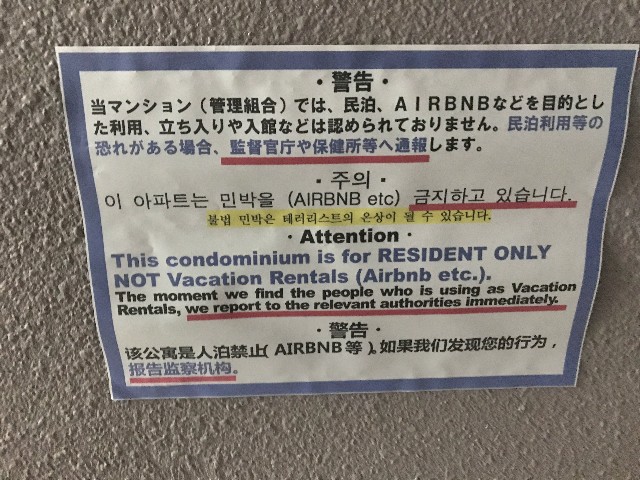When traveling abroad, lack of preparation can lead to travel plans falling apart or, in the worst case, finding yourself stranded in an unfamiliar place. This article compiles 10 essential research points to help ensure your trip doesn’t end in disaster. For those about to embark on a journey, please read this as part of your final checklist!
1. Time Required for Airport Check-in and Transit

Airport check-in and transit procedures are the first hurdles of your trip. Make sure to research online not only the check-in counter closing times but also how crowded the counters typically get.
For connecting flights, it’s crucial to check whether your arrival and departure terminals are the same. Even within the same airport, different terminals can require significant travel time between them. Research these details thoroughly and plan your schedule with ample buffer time.
2. Visa Requirements
Some countries require you to apply for a visa before entry. For example, following the COVID-19 pandemic, China now generally requires visas for tourists from most countries including those that previously enjoyed visa-free access. Many travelers have been turned away at airports because they were unaware of these requirements. Visa requirements can be verified on embassy or consulate websites, so make sure to check before your trip.
3. Local Transportation Options

Local transportation also requires advance research. Those accustomed to motorbike taxis in Southeast Asia might assume “in countries with low cost of living, transportation will sort itself out once you’re there,” but in some countries or regions, taxi fares can be extremely high, or in rural areas, taxis might not be available at all.
If you have a train or flight to catch for your next destination, it can be very stressful if you can’t find a taxi at the last minute. Be sure to research not only how to arrange taxis locally but also what flexible transportation options are available at your destination.
4. Credit Card Settings
When using credit cards abroad, it’s important to verify your settings beforehand. Check whether your spending and cash advance limits are sufficient, and whether your card is set up for international use. If you travel assuming you can use your credit card but discover it doesn’t work locally, you could find yourself in serious trouble. Access your card’s website or contact the card company to confirm international usage settings in advance.
5. Passport Expiration Date and Name

Something easily overlooked is your passport’s expiration date. Passports typically come in 5-year or 10-year validity options, but time passes surprisingly quickly with either. If you notice your passport has expired just before travel, passport renewal often takes a month or more, which could mean game over for your trip.
Another critical detail not to miss is the name on your passport. Surprisingly many people forget to update their passport name after marriage or divorce. If the name on your flight reservation differs from the name on your passport, airlines may deny boarding for security reasons, so check this carefully.
6. Travel History to Adversarial Countries

Some countries may deny entry if you have previously visited certain nations they consider adversarial. For example, having visited Israel can make entry into some Arab nations difficult. Similarly, if you’ve entered Iran or Syria, you’ll need a visa to enter the United States even for tourism. Check your travel history and research potential issues in advance.
7. Vaccination Requirements
While more countries are dropping COVID-19 vaccination requirements, many still mandate vaccines for diseases like yellow fever as an entry requirement. If you’re planning travel to Africa or South America in particular, verify the necessary vaccinations and get them well before your trip.
8. Holidays and Office Hours

Some countries don’t observe weekends on Saturday and Sunday, and in some places, tourist attractions may be completely closed on holidays. Additionally, some countries have prayer times or siesta periods when shops close in the afternoon, which can disrupt your travel plans. When creating your itinerary, check local holidays and business hours and incorporate them into your plan.
Naturally, also check the regular closing days of any specific shops or restaurants you want to visit by looking at their social media or websites in advance.
9. Attraction Ticket Reservations
Many popular tourist destinations abroad require advance ticket reservations. For example, famous museums and historical buildings in Europe often sell out of same-day tickets quickly. If you show up without a reservation, you’re likely to be denied entry, so be sure to book your tickets online in advance.
10. Transportation Reservations

Long-distance buses and high-speed trains may also require advance reservations. Just like overnight buses or bullet trains in many countries, popular routes often sell out on the day of travel. If you don’t want to disrupt your itinerary, make online reservations in advance to secure your seats.
How Was That?
Preparation is essential for a successful international trip. Focus on the points covered in this article—research the culture, customs, and transportation of your destination, and be sure to verify passport and visa requirements. Check everything necessary for your journey in advance. With thorough preparation, you can enjoy your travels with peace of mind.



![The Nightmare of Losing My Credit Card in an Overseas ATM – A Ho Chi Minh Travel Story [The Trap of Foreign Cash Withdrawals]](https://en.kosupatravel.com/wp-content/uploads/2025/03/20240613095316.jpg)
![Hold That Flight Reservation! 8 Disadvantages of Airline Reward Tickets You Should Know Before Booking [The Pitfalls of Using Miles]](https://en.kosupatravel.com/wp-content/uploads/2024/12/20240411094353-1024x683.jpg)